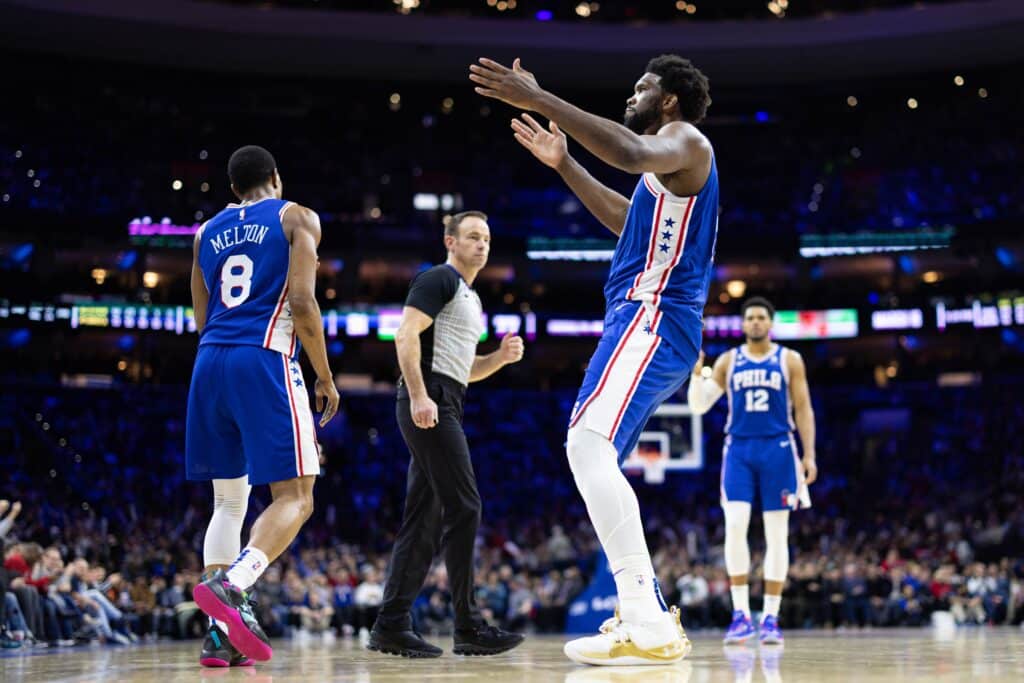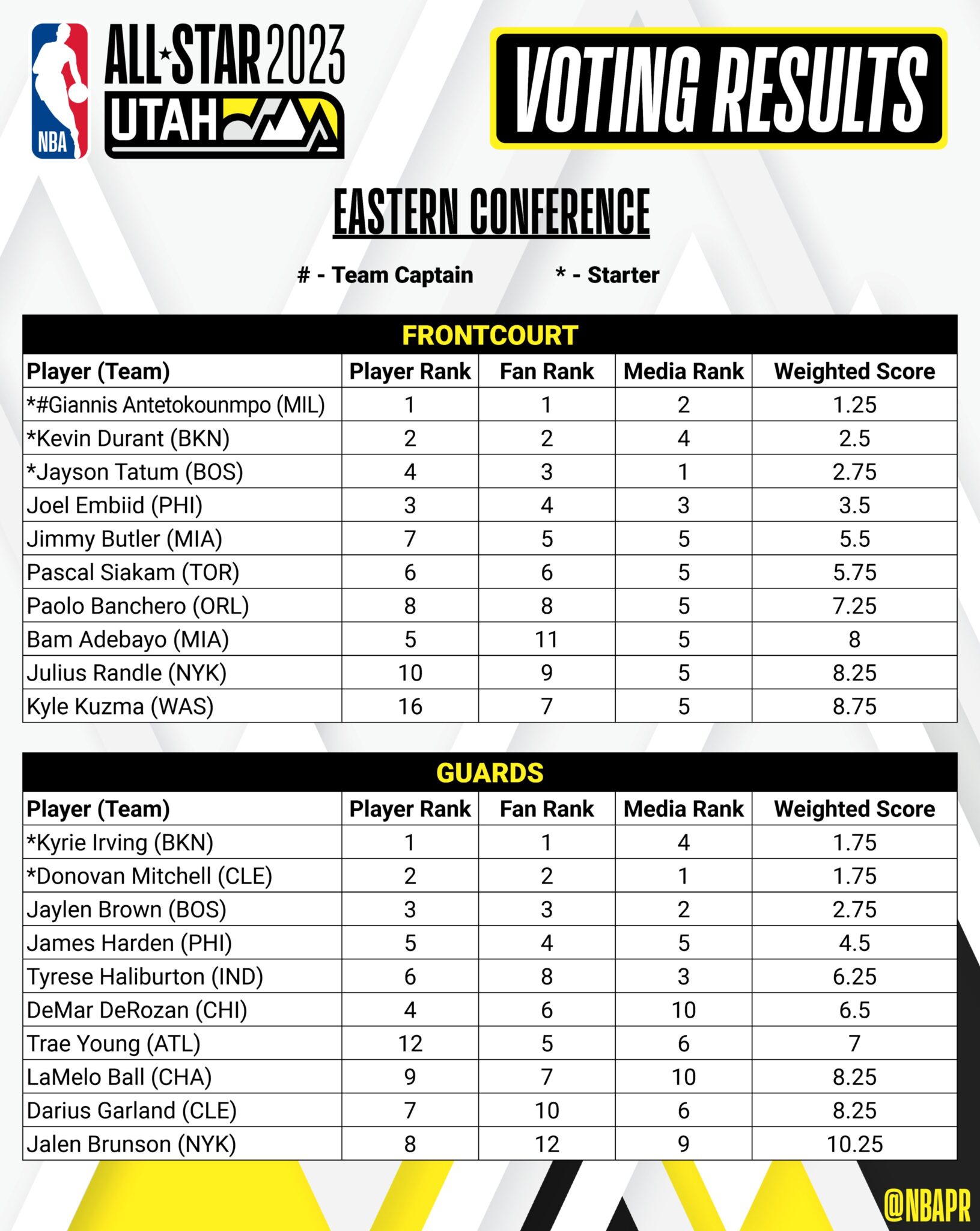Ad Disclosure
You Can Fix the NBA All Star Voting Problem in Two Seconds

Joel Embiid is not going be an NBA All Star Game starter:
They give three starting spots to front court players and two starting sports to back court players, which means that Embiid, who leads the entire league in scoring with 33.4 points per game, will have to be selected as an All Star reserve.
Here’s how they determine the starters, for context:
Starters for the 2023 NBA All-Star Game were selected by fans, current NBA players and a media panel. Fans accounted for 50 percent of the vote to determine the starters, while players and media accounted for 25 percent each.
After all votes were tallied, players were ranked in each conference by position (guard and frontcourt) within each of the three voting groups. Each player’s score was calculated by averaging his weighted rank from the fan votes, the player votes and the media votes. The two guards and three frontcourt players with the best score in each conference were named NBA All-Star Game starters.
Each player’s score was weighted based on 50 percent for fan vote, 25 percent for players vote and 25 percent for media vote. The formula to determine a player’s score is (Fan Rank * 2 + Player Rank + Media Rank)/4.
For the Eastern Conference front court, Embiid finished 3rd in the player and media voting but 4th in fan voting, which is weighted higher than the other two. Fans typically vote for who they like, though it’s not like player and media voting is 100% bulletproof and bias free either. This kind of stuff happens in All Star Games across every sport.
The obvious fix is to just remove the position-based parameters. Best five from each conference get the “starting” slots. Some years you’ll have four amazing bigs and one amazing guard. In other years you’ll have five elite guards and just a couple of decent bigs. Joel Embiid is one of the four best players in the Eastern Conference this year, so the process certainly needs to be changed. If we’re valuing “positionless” basketball in 2023, then the ASG should reflect that evolution.
Kevin has been writing about Philadelphia sports since 2009. He spent seven years in the CBS 3 sports department and started with the Union during the team's 2010 inaugural season. He went to the academic powerhouses of Boyertown High School and West Virginia University. email - k.kinkead@sportradar.com
